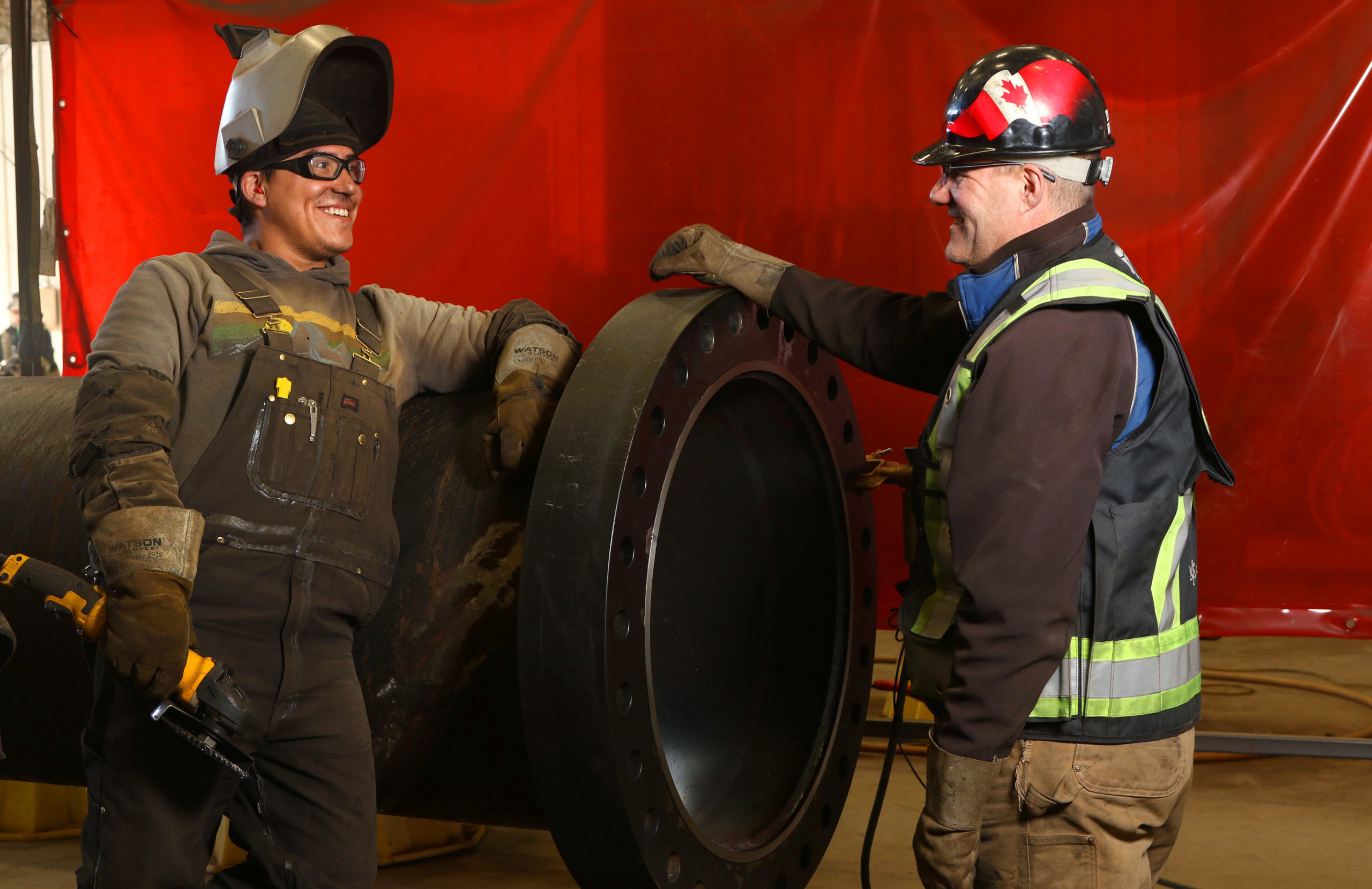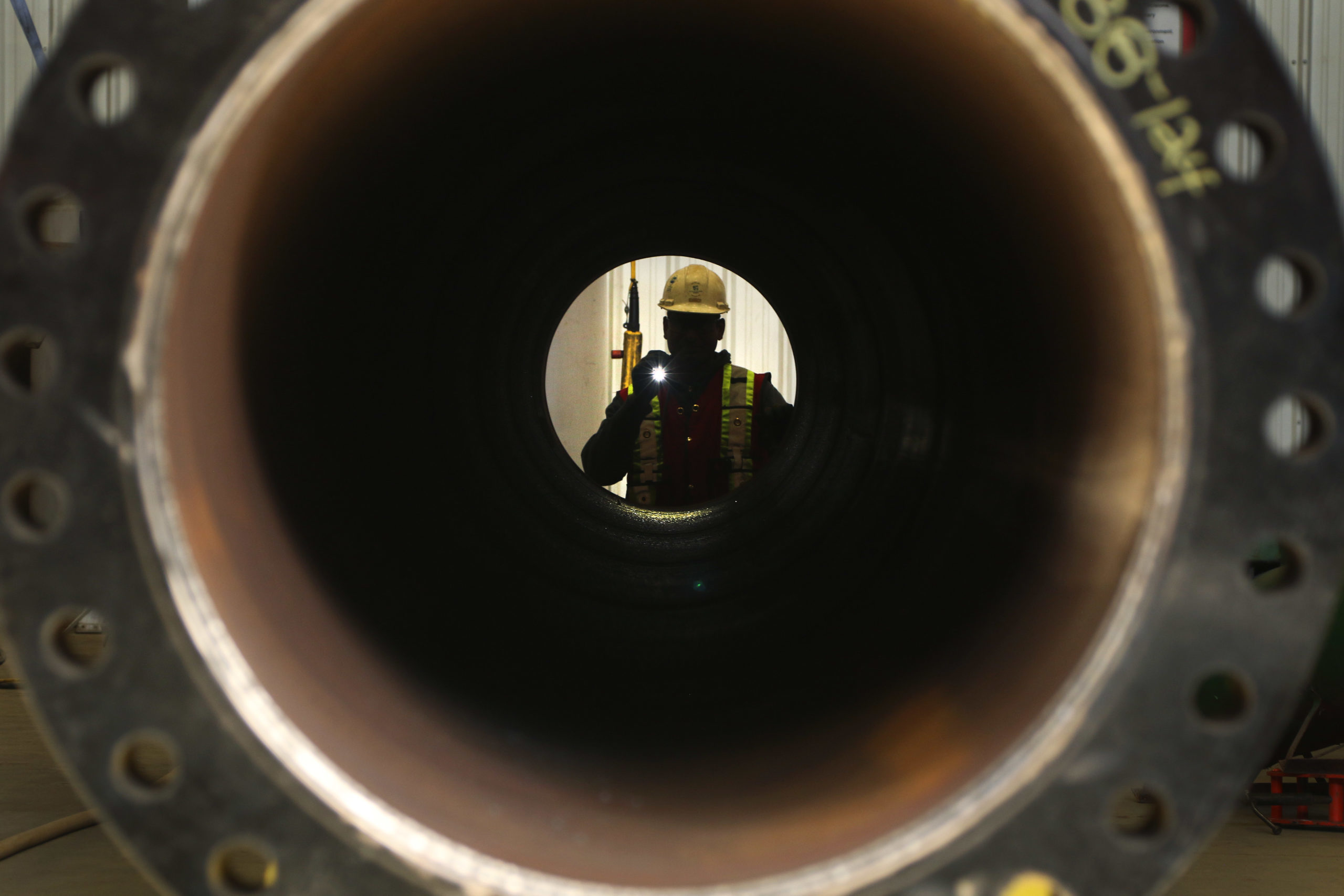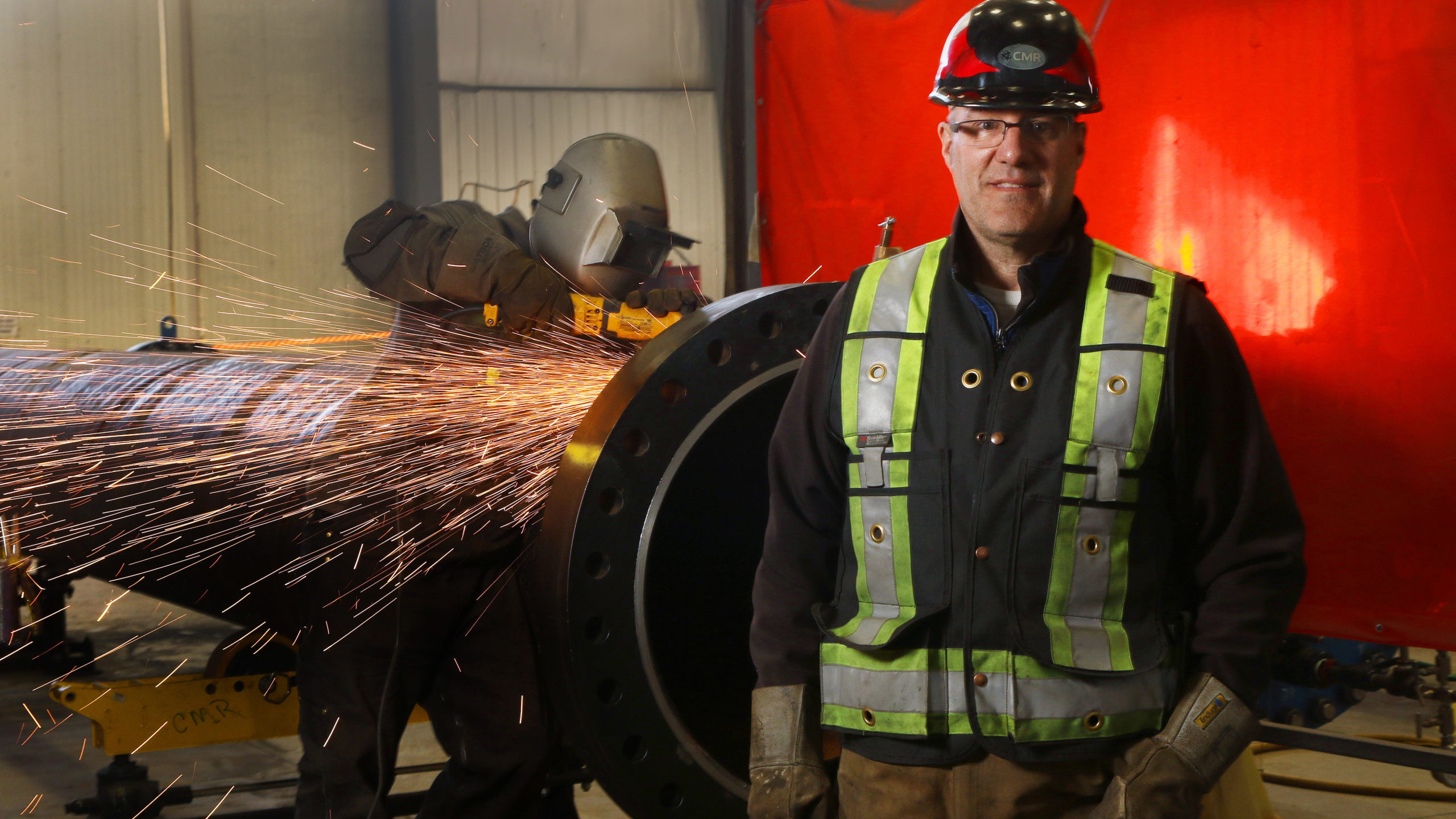The thing about Totem poles, says Metis business leader Jon Rivard, is they always start with a strong foundation.
That’s the philosophy behind central Alberta-based CMR Fabricators Totem Training Program, which identifies Indigenous people seeking an opportunity to learn a trade — along with a healthy dose of life skills if needed — no matter their background or experience.
“In First Nations tradition, the strongest part of the Totem pole was at the bottom,” says Rivard, president of CMR, which carries the initials of his three teenage daughters – Cameron, Mikah and Regan.
“I want these guys to come in and get the training they need, but also carry on with their traditional way of living.”
Despite his Metis heritage – his grandmother is Cree from Saskatchewan, his grandfather a French immigrant – Rivard only began researching his ancestry over the last few years.
To say it was an eyeopener would be an understatement. Rivard is a direct descendent of renowned Cree Chief Pitikwahanapiwiyin, also known as Poundmaker, who was jailed after the 1885 Metis Rebellion and was ultimately exonerated by the Canadian government in 2019.
Poundmaker is remembered as a diplomat and a peacemaker, devoted to creating a better way of life for his people.
Rivard, who is in the process of getting his Indigenous name, says creating those opportunities for Indigenous people is exactly what the Totem program is all about.

“What we have found is you can’t teach any of these really technical skills until they have the confidence in themselves, and know how to live,” Rivard says.
“At the end of the day, they don’t have to stay with us. We want them to get enough experience so they can try to apply for jobs across Canada and write their own stories.”
Now in its 20th year of operation, Indigenous-owned CMR and its current staff of about 30 fabricates pipelines and associated equipment, builds modules with a focus on the oil, gas and petrochemical industries, as well as providing construction management.
The idea of the training program is to kindle interest into opportunity for First Nations’ residents who might not otherwise have the chance to find their way into a skilled trade.
Jeff Berube, CMR’s business development manager, says the pool of workers comes from Indigenous communities where the company — based in Penhold, some 170 kilometres south of Edmonton – finds contract work.
“What (Rivard) wanted to do was create better futures for Aboriginal communities,” he says.
“We figure out what communities are close by when we do a project and then we invite Indigenous people to come and live at our shop for a couple months for this program. The idea is to spur interest into skilled trades.”
Candidates are then given free lodging at a refurbished former Second World War-era Royal Canadian Air Force Base, in a barracks that up until 2014 served as a training facility for Air Cadets, where they not only learn many aspects of the fabrication trade – welding, pipe fitting – but critical life skills like opening bank accounts, booking doctor’s appointments and grocery shopping.
“The idea is on field jobs there might have been some basic general labour jobs, but nothing that was meaningful for people, nothing you’d want to make a career out of,” Berube says, noting participants are also paid a fair wage while they learn.
“(Rivard) set out to change that, and try to interest people in the skilled trades, which once they’re journeymen they can go back to their communities, and whether there’s work close to their community or not, they’re able to work all over western Canada.”

In 2020, the first full year of the program, eight Indigenous workers went through – two of them women – and from that group, three have signed up for first-year welding apprenticeships and another is pursuing an apprenticeship in pipefitting.
Participants hail from a range of First Nations stretching from B.C. to Saskatchewan, including the Ermineskin Cree Nation, Samson Cree Nation, Louis Bull First Nation, Montana First Nation, Sturgeon Lake First Nation, and the Beaver First Nation, by way of B.C.’s Blueberry River First Nation.
This year, the Totem program is looking to bring on a dozen candidates with the hope of sending another group of Indigenous workers grounded in CMR’s training into the world that are ready to pursue always in-demand skilled trades.
According to Rivard, the early success of the program has been an eye opener for some of the bigger players in the industry who are keen to see more Indigenous participation in their supply chains to help meet their commitments to environmental, social and governance standards.
“We’re hoping some other companies catch on to it,” says Rivard, noting he’d like to see the Totem program become a catalyst for growing Indigenous participation on major projects across Canada.
“I think there’s a lot of untapped skill out there. What I would love to see is a good mid-sized project with 100 per cent Indigenous participation.”
